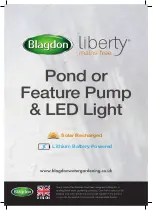
English
English
© Titan Tool Inc. All rights reserved.
3
Important Safety Information
7. Do not expose the hose to temperatures or pressures in excess
of those specified by manufacturer.
8. Do not use the hose as a strength member to pull or lift the
equipment.
9. Use lowest possible pressure to flush equipment.
10. Follow all appropriate local, state and national codes
governing ventilation, fire prevention and operation.
11. The United States Government Safety Standards have been
adopted under the Occupational Safety and Health Act
(OSHA). These standards, particularly part 1910 of the General
Standards and part 1926 of the Construction Standards should
be consulted.
12. Before each use, check all hoses for cuts, leaks, abrasion
or bulging of cover. Check for damage or movement
of couplings. Immediately replace hose if any of those
conditions exist. Never repair a paint hose. Replace with a
conductive high-pressure hose.
13. Do not spray outdoors on windy days.
14. Always unplug cord from outlet before working on equipment
(electric models only).
ImPORTANT: Do not lift cart handle when loading or unloading.
Gasoline Engine Safety
The engine exhaust from this unit contains chemicals
known to the State of california to cause cancer, birth
defects, or other reproductive harm.
1. Gas engines are designed to give safe and dependable service
if operated according to instructions. Read and understand
the engine Owner’s Manual before operating the engine.
Failure to do so could result in personal injury or equipment
damage.
2. To prevent fire hazards and to provide adequate ventilation,
keep the engine at least 1 meter (3 feet) away from buildings
and other equipment during operation. Do not place
flammable objects close to the engine.
3. Children and pets must be kept away from the area of
operation due to a possibility of burns from hot engine
components or injury from any equipment the engine may be
used to operate.
4. Know how to stop the engine quickly, and understand the
operation of all controls. Never permit anyone to operate the
engine without proper instructions.
5. Gasoline is extremely flammable and is explosive under
certain conditions.
6. Refuel in a well-ventilated area with the engine stopped. Do
not smoke or allow flames or sparks in the refueling area or
where gasoline is stored.
7. Do not overfill the fuel tank. After refueling, make sure the
tank cap is closed properly and securely.
8. Be careful not to spill fuel when refueling. Fuel vapor or
spilled fuel may ignite. If any fuel is spilled, make sure the area
is dry before starting the engine.
9. Never run the engine in an enclosed or confined area. Exhaust
contains poisonous carbon monoxide gas; exposure may
cause loss of consciousness and may lead to death.
10. The muffler becomes very hot during operation and remains
hot for a while after stopping the engine. Be careful not to
touch the muffler while it is hot. To avoid severe burns or fire
hazards, let the engine cool before transporting it or storing it
indoors.
11. Never ship/transport unit with gasoline in the tank.
Specifications
Gallons per minute (GPM) 1.65 (6.25 LPM)
Maximum tip sizes
one gun = 0.042”
two guns = 0.029”
three guns = 0.023”
four guns = 0.017”
Maximum pressure
3300 PSI (22.8 MPa)
Power
7.0 HP gas engine
Weight
164 lbs. (74.4 kg)
Maximum hose length
300’ (91.4 m)
Table of contents
Safety Precautions ........................................................................... 2
Français ..........................................................................................................18
Español ...........................................................................................................20
Specifications ................................................................................... 3
General Description ........................................................................ 4
Operation ......................................................................................... 4
Fueling ..............................................................................................................4
Setup .................................................................................................................4
Preparing to Paint.........................................................................................5
Painting ............................................................................................................6
Pressure Relief Procedure ..........................................................................6
Spraying ........................................................................................... 7
Spraying Technique .....................................................................................7
Practice .............................................................................................................7
cleanup ............................................................................................ 8
maintenance .................................................................................... 8
General Repair and Service Notes ..........................................................8
Maintaining the Engine ..............................................................................9
Replacing the Filter ......................................................................................9
Replacing the PRIME/SPRAY Valve .........................................................9
Replacing the Potentiometer .................................................................10
Replacing the Sprayer ON/OFF Switch ...............................................10
Replacing the Transducer ........................................................................10
Replacing the Electronic Pressure Control (EPC) Assembly ........11
Replacing the Slider Assembly and Slider Housing .......................11
Replacing the Gears ...................................................................................12
Servicing the Clutch Assembly ..............................................................13
Servicing the Fluid Section ......................................................................15
Troubleshooting ............................................................................ 17
Parts Listings .................................................................................. 22
Main Assembly ............................................................................................22
Drive Assembly ............................................................................................23
Fluid Section Assembly ............................................................................24
Cart Assembly ..............................................................................................25
Filter Assembly ............................................................................................25
PRIME/SPRAY Assembly ...........................................................................26
5 Gallon Siphon Set (optional) ...............................................................26
Electrical Schematic ...................................................................................27
Labels ..............................................................................................................27
Accessories ....................................................................................................27
Limited Warranty ........................................................................... 28




































